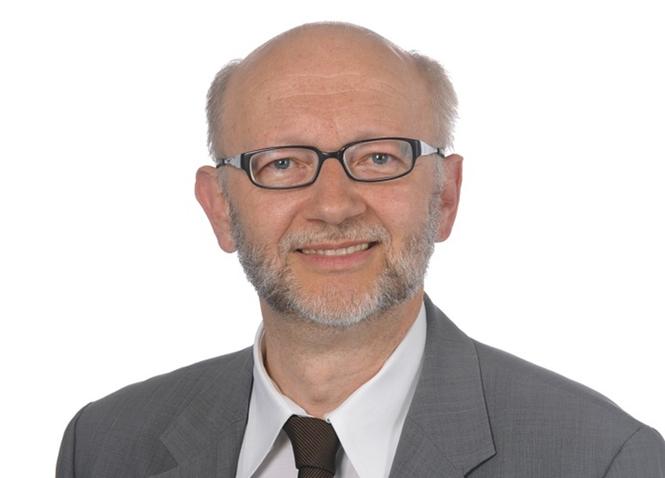Vaskuläre Biologie und Pathologie
Arbeitsgruppe Prof. Bernd Engelmann
For the English version please see below.
Immunothrombosen als biologische Basis pathologischer Thrombosen
Unsere Gruppe erforscht Immunreaktionen innerhalb von Blutgefässen (intravasale Immunität). Wir haben eine physiologische Form der Thrombose identifiziert, die wir als Immunothrombose bezeichnet haben.

Was besagt das Konzept der Immunothrombose?
Als Reaktion auf systemische Infektionen und/oder Veränderungen des Gefässendothels kann es zur Bildung von Thrombosen in der Mikrozirkulation von Organen kommen. Diese Immunothrombosen werden von angeborenen Immunzellen wie Neutrophilen und klassischen (inflammatorischen) Monozyten vermittelt. Als prokoagulatorische Moleküle fungieren hierbei u.a. intravasaler Tissue Factor (TF, Startermolekül der extrinsischen Koagulation) sowie die neutrophil extracellular traps (NETs). NETs fördern die Fibrinbildung u.a. über Aktivierung des Koagulationsfaktors XII sowie die Inaktivierung des antikoagulatorischen Tissue Factor Pathway Inhibitor (TFPI).
Thrombosen der Mikrozirkulation unterstützen das intravasale Immunsystem, da sie u.a. die Disseminierung von Pathogenen hemmen und deren Eliminierung fördern können. Des Weiteren können die basalen Komponenten der Thrombosen, Plättchen und Fibrin, den Phänotyp von Immunzellen kontrollieren. So sind Plättchen entscheidend an der Freisetzung von NETs aus aktivierten Neutrophilen beteiligt. Jedoch sind die molekularen und zellulären Mediatoren der Immunothrombose noch unzureichend erforscht.
Unlängst haben wir CD4+T-Zellen als negative Regulatoren der Immunothrombose identifiziert. T-Helferzellen werden an fibrinreiche Thromben rekrutiert und dort aktiviert. Hierdurch exprimieren die T-Zellen vermehrt fibrinolytische Proteine und inaktivieren Fibrinolyse-Inhibitoren wie den thrombin activatable fibrinolysis inhibitor (TAFI). Bei viralen Infektionen sind Lymphozytopenien offenbar direkt für die erhöhte Bildung von Thrombosen verantwortlich.
Warum sind Immunothrombosen medizinisch von Bedeutung?
Immunothrombosen stellen eine biologische Matrize für pathologische Thrombosen dar. Zentrale zelluläre und molekulare Mediatoren der Immunothrombosen induzieren in der Tat venöse Thromboembolien und arterielle Thrombosen in grossen Gefässen. Pathologische Immunothrombosen sind ein zentrales Kennzeichen von bakterieller Sepsis und SARS-CoV-2-Infektionen und sind für deren Morbidität und Mortalität mitverantwortlich.
Prothrombotische Funktionen der NETs/Neutrophilen und antithrombotisch wirksame T-Helferzellen können erklären, warum erhöhte Neutrophilen/Lymphozyten Quotienten Risikofaktoren für pathologische Thrombosen darstellen. Die molekularen Mediatoren der Immunothrombosen stellen daher prinzipiell Zielstrukturen für Immunotherapien von Thrombosen dar. Da viele der Mediatoren der Immunothrombosen nicht oder nur eine geringe Bedeutung für die physiologische Blutstillung spielen, könnten Immunotherapien Thrombosen hemmen ohne nennenswerte Blutungen auszulösen.
Intravasale Immunität und Metastasierung
Tumorzellen des Primärtumors können in Blutgefässe eindringen, um in der Mikrozirkulation bestimmter Organe die Blutgefässe wieder zu verlassen und Metastasen zu bilden. Die Mechanismen der intravasalen und perivasalen Metastasierung sind noch wenig erforscht. Daher untersuchen wir anhand der Metastasierung des Pankreaskarzinoms die Adhäsion der Tumorzellen an das Gefässendothel, ihre transendotheliale Migration und perivasale Bildung prämetastatischer Nischen. Unter allen Bedingungen wird analysiert, welche Immunzellen die Tumorzellen bzw. ihre extrazellulären Vesikel (Mikrovesikel, Exosomen) während dieses Prozesses erkennen bzw. wie die Tumorzellen der Erkennung durch das Immunsystem entgehen.







Assoziiert:
Dr. med. Tonina Müller
Ausgewählte Publikationen
Mueller TT, Pilartz M, Thakur M, LangHeinrich T, Luo J, Block R, Hoeflinger JKL, Meister S, Karaj F, Perez LG, Öllinger R, Engleitner T, Thoss J, Voelkl M, Tersteeg C, Koedel U, Kohlmaier AZ, Teupser D, Wygrecka M, Ye H, Preissner KT, Radbruch H, Elezkurtaj S, Mack M, Von Hundelshausen P, Weber C, Massberg S, Schulz C, Rad R, Huber S, Ishikawa-Ankerhold H, Engelmann B. Mutual regulation of CD4+ T cells and intravascular fibrin in infections. Haematologica. 2024 Aug 1;109(8):2487-2499. doi: 10.3324/haematol.2023.284619. PMID: 38572559; PMCID: PMC11290509.
Stark K, Kilani B, Stockhausen S, Busse J, Schubert I, Tran TD, Gaertner F, Leunig A, Pekayvaz K, Nicolai L, Fumagalli V, Stermann J, Stephan F, David C, Müller MB, Heyman B, Lux A, da Palma Guerreiro A, Frenzel LP, Schmidt CQ, Dopler A, Moser M, Chandraratne S, von Brühl ML, Lorenz M, Korff T, Rudelius M, Popp O, Kirchner M, Mertins P, Nimmerjahn F, Iannacone M, Sperandio M, Engelmann B, Verschoor A, Massberg S. Antibodies and complement are key drivers of thrombosis. Immunity. 2024 Sep 10;57(9):2140-2156.e10. doi: 10.1016/j.immuni.2024.08.007. Epub 2024 Sep 2. PMID: 39226900.
Brandhofer M, Hoffmann A, Blanchet X, Siminkovitch E, Rohlfing AK, El Bounkari O, Nestele JA, Bild A, Kontos C, Hille K, Rohde V, Fröhlich A, Golemi J, Gokce O, Krammer C, Scheiermann P, Tsilimparis N, Sachs N, Kempf WE, Maegdefessel L, Otabil MK, Megens RTA, Ippel H, Koenen RR, Luo J, Engelmann B, Mayo KH, Gawaz M, Kapurniotu A, Weber C, von Hundelshausen P, Bernhagen J. Heterocomplexes between the atypical chemokine MIF and the CXC-motif chemokine CXCL4L1 regulate inflammation and thrombus formation. Cell Mol Life Sci. 2022 Sep 12;79(10):512. doi: 10.1007/s00018-022-04539-0. PMID: 36094626; PMCID: PMC9468113.
Pfeiler S, Thakur M, Grünauer P, Megens RTA, Joshi U, Coletti R, Samara V, Müller-Stoy G, Ishikawa-Ankerhold H, Stark K, Klingl A, Fröhlich T, Arnold GJ, Wörmann S, Bruns CJ, Algül H, Weber C, Massberg S, Engelmann B. CD36-triggered cell invasion and persistent tissue colonization by tumor microvesicles during metastasis. FASEB J. 2019 Feb;33(2):1860-1872. doi: 10.1096/fj.201800985R. Epub 2018 Sep 12. PMID: 30207797.
Engelmann B, Massberg S. Thrombosis as an intravascular effector of innate immunity. Nat Rev Immunol. 2013 Jan;13(1):34-45. doi: 10.1038/nri3345. Epub 2012 Dec 7.
Vascular Biology and Pathology
Engelmann Lab
Immunothrombosis as biological basis of pathological thrombosis
Our group studies immune responses inside blood vessels, so called intravascular immunity. We have identified a physiological type of thrombosis designated as immunothrombosis which participates in intravascular immunity.

What does the concept of immunothrombosis mean?
As a reaction to systemic infections and/or alterations of the inner layer of the blood vessels, the endothelium, thrombi develop in different branches of the blood circulation, especially in the microcirculation. Immunothrombosis is primarily mediated by myeloid immune cells in particular by classical monocytes and neutrophils. These cells express intravascular tissue factor (TF, the initiator molecule of extrinsic blood coagulation) as well as neutrophil extracellular traps (NETs). NETs promote fibrin formation among other mechanisms via activation of coagulation factor XII as well as by inactivating the anticoagulant protein tissue factor pathway inhibitor (TFPI). Thrombosis supports intravascular immunity through several mechanisms. It helps to detect pathogens circulating in blood via specialized receptors, can trap them thus preventing their dissemination and participates in their elimination. It moreover regulates the phenotype of diverse immune cells including lymphoid cells such as T helper cells. Thrombosis dependent regulation of immune cells is critically controlled by platelets and fibrin, the major thrombus components. Accordingly, platelets support the expulsion of NETs while fibrin attracts and activates T helper cells.
Activated CD4+T cells in turn act as negative regulators of thrombosis. Their activation indeed promotes the expression of fibrinolytic proteins as well as causes inactivation of fibrinolysis inhibitors as thrombin activatable fibrinolysis inhibitor (TAFI). In viral and bacterial infections severe reductions in T helper cells are most likely responsible for the development of pathological thrombosis. So far, the molecular and cellular mediators of immunothrombosis, its functions as well as its relation to the different types of pathological thrombosis are insufficiently known.
Why is immunothrombosis relevant for medicine?
Pathological thrombosis is the major cause of death worldwide as it causes vasoocclusions resulting in myocardial infarction and stroke (arterial thrombosis), deep vein thrombosis and pulmonary embolism (venous thrombosis) as well as microvascular coagulopathies. We have suggested that immunothrombosis represents a biological template for many pathological types of thrombosis. Indeed, central molecular and cellular mediators of immunothrombosis (often also referred to as thromboinflammation) such as NETs or TF expressing classical monocytes also promote venous thromboembolism and arterial thrombosis. Coagulopathies based on immunothrombosis are critically relevant the outcome of bacterial sepsis and SARS-CoV-2 infections.
Prothrombotic functions of neutrophil/NETs and antithrombotic T helper cells could explain why an increased neutrophil/lymphocyte ratio can predict deleterious vasoocclusions. Consequently, immune mediators of thrombosis represent in principle promising targets for immunotherapies of pathological thromboses. Since many of these targets are not of (major) relevance for hemostasis such immunotherapies could suppress vasoocclusions without inducing bleeding, the major common complication of all antithrombotic therapies currently in use.
Intravascular immunity, coagulation and tumor metastasis
Tumor cells migrating from the primary tumor to vicinal blood cells can enter into the blood circulation and travel within the blood stream to the microcirculation of distant organs where they can trigger metastasis. The mechanisms of intravascular metastasis are still insufficiently known. This holds especially for the activation of coagulation during the metastatic process which can be triggered by the tumor cells themselves or by immune cells responding to the metastatic threat.
Hence, we aim to reveal not only the role of tumor cells but also of myeloid and lymphoid cells for activation of coagulation in pancreatic cancer metastasis. Particularly, we investigate the arrest of tumor cells and their extracellular vesicles in the microcirculation, their transendothelial migration as well as the formation of perivascular metastatic niches and how immune cells interrupt such processes and/or how tumor cells escape detection by immune cells during early metastasis.







Associated:
Tonina Müller, MD
Selected Publications
Mueller TT, Pilartz M, Thakur M, LangHeinrich T, Luo J, Block R, Hoeflinger JKL, Meister S, Karaj F, Perez LG, Öllinger R, Engleitner T, Thoss J, Voelkl M, Tersteeg C, Koedel U, Kohlmaier AZ, Teupser D, Wygrecka M, Ye H, Preissner KT, Radbruch H, Elezkurtaj S, Mack M, Von Hundelshausen P, Weber C, Massberg S, Schulz C, Rad R, Huber S, Ishikawa-Ankerhold H, Engelmann B. Mutual regulation of CD4+ T cells and intravascular fibrin in infections. Haematologica. 2024 Aug 1;109(8):2487-2499. doi: 10.3324/haematol.2023.284619. PMID: 38572559; PMCID: PMC11290509.
Stark K, Kilani B, Stockhausen S, Busse J, Schubert I, Tran TD, Gaertner F, Leunig A, Pekayvaz K, Nicolai L, Fumagalli V, Stermann J, Stephan F, David C, Müller MB, Heyman B, Lux A, da Palma Guerreiro A, Frenzel LP, Schmidt CQ, Dopler A, Moser M, Chandraratne S, von Brühl ML, Lorenz M, Korff T, Rudelius M, Popp O, Kirchner M, Mertins P, Nimmerjahn F, Iannacone M, Sperandio M, Engelmann B, Verschoor A, Massberg S. Antibodies and complement are key drivers of thrombosis. Immunity. 2024 Sep 10;57(9):2140-2156.e10. doi: 10.1016/j.immuni.2024.08.007. Epub 2024 Sep 2. PMID: 39226900.
Brandhofer M, Hoffmann A, Blanchet X, Siminkovitch E, Rohlfing AK, El Bounkari O, Nestele JA, Bild A, Kontos C, Hille K, Rohde V, Fröhlich A, Golemi J, Gokce O, Krammer C, Scheiermann P, Tsilimparis N, Sachs N, Kempf WE, Maegdefessel L, Otabil MK, Megens RTA, Ippel H, Koenen RR, Luo J, Engelmann B, Mayo KH, Gawaz M, Kapurniotu A, Weber C, von Hundelshausen P, Bernhagen J. Heterocomplexes between the atypical chemokine MIF and the CXC-motif chemokine CXCL4L1 regulate inflammation and thrombus formation. Cell Mol Life Sci. 2022 Sep 12;79(10):512. doi: 10.1007/s00018-022-04539-0. PMID: 36094626; PMCID: PMC9468113.
Pfeiler S, Thakur M, Grünauer P, Megens RTA, Joshi U, Coletti R, Samara V, Müller-Stoy G, Ishikawa-Ankerhold H, Stark K, Klingl A, Fröhlich T, Arnold GJ, Wörmann S, Bruns CJ, Algül H, Weber C, Massberg S, Engelmann B. CD36-triggered cell invasion and persistent tissue colonization by tumor microvesicles during metastasis. FASEB J. 2019 Feb;33(2):1860-1872. doi: 10.1096/fj.201800985R. Epub 2018 Sep 12. PMID: 30207797.
Engelmann B, Massberg S. Thrombosis as an intravascular effector of innate immunity. Nat Rev Immunol. 2013 Jan;13(1):34-45. doi: 10.1038/nri3345. Epub 2012 Dec 7.

